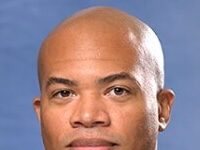 A recent study from researchers at the University of Illinois found that the overall racial climate on a college campus — as determined by experiences of racial microaggressions — is a contributing factor in the lack of representation of students of color in STEM education programs.
A recent study from researchers at the University of Illinois found that the overall racial climate on a college campus — as determined by experiences of racial microaggressions — is a contributing factor in the lack of representation of students of color in STEM education programs.
In other words, the study found when students of color in STEM majors felt excluded, invisible, or isolated on their college campus because of their race, sometimes combined with discouraging experiences in academic settings, they were less likely to continue in STEM.
Survey participants responded to questions asking, for example, if they have had their contributions minimized in classrooms because of their race; experienced negative and insulting comments because of their race; or felt invisible or unwelcome on their campus because of their race. Some students reported dropping out of STEM majors because of these experiences or having been encouraged by advisers or instructors to change to a non-STEM major.
 Jasmine Collins, assistant professor of organizational and community leadership at the University of Illinois and a co-author of the study, stated that “in order to educate our workforce, students have to come through our doors and if these are the kinds of experiences students of color are facing — the campus signals to them they don’t belong in STEM, their peers in class don’t want to work with them because they think they’re incompetent, or their adviser recommends they switch majors because this might be too hard for them — if it’s just message after message saying, ‘you don’t belong here, you’re not smart enough, you’re not skilled enough to have this kind of job,’ then we’re losing a lot of talent in the pipeline.”
Jasmine Collins, assistant professor of organizational and community leadership at the University of Illinois and a co-author of the study, stated that “in order to educate our workforce, students have to come through our doors and if these are the kinds of experiences students of color are facing — the campus signals to them they don’t belong in STEM, their peers in class don’t want to work with them because they think they’re incompetent, or their adviser recommends they switch majors because this might be too hard for them — if it’s just message after message saying, ‘you don’t belong here, you’re not smart enough, you’re not skilled enough to have this kind of job,’ then we’re losing a lot of talent in the pipeline.”
Dr. Collins is a graduate of Indiana Univerity, where she majored in communication and culture. She holds a master’s degree in educational policy studies and a Ph.D. in educational organization and leadership from the University of Illinois.
The full study, “’If You Aren’t White, Asian or Indian, You Aren’t an Engineer’: Racial Microaggressions in STEM Education,” was published in the International Journal of STEM Education. It may be accessed here.











Every university and major private sector corporation I’ve worked in is loaded with people who believe blacks just aren’t smart enough, aren’t competent, can’t cut the mustard, etc.
But it is time to stop documenting and describing these problems and start doing more to tackle them.
For example, black university students can form more virtual study groups to share lecture notes, cheat sheets and other study aids — the kind of materials that have often circulated only among white and Asian students. Corporate professionsls can step up their efforts to help each other in much the same way.
So the “racial microaggression” is just against blacks, but not other people of color such as south or east asians? I don’t get it…
And is it the case that HBCUs turn out lots of well-qualified STEM-trained blacks with competitive scores b/c racial microaggression is not an issue there?
To be quite honest, Asian Americans are seen as the “model minority”. You know that I’m sure. Additionally Asian Americans are far better at assimilating in “white spaces” STEM fields included.
Finally, the reality is – and this is no shocker to anyone intimately aware of the HBCU curriculum – no, they are not turning out stellar STEM graduates. The foundational coursework required for these fields are not taught properly amongst schools that educate majority African American students K-12. There is some progress in this area, but not enough to say, our students are outstanding graduates in these fields and it is simply an issue of micro-aggressions.
I agree with the above comment. For someone who has worked on several urban colleges campuses directing engineering and S.T.E.M. programs, students have often expressed concerned about microaggressions, especially Black students. Their experiences impact their ability to participate in groups because many view them as less than competent because of a world-view of their academic abilities. Basically, the belief that they do not have the academic prowess. NOT TRUE. Given support through programs like underrepresented engineering and STEM support programs these students thrive. LET’S stop talking about it and doing studies; bring back support programs, role models, scholarship support and the commitment of Deans and Presidents to make this right.
Teresa,
You should be duly ashamed for making an inaccurate and hasty generalization about HBCUs by asserting “they are not turning out stellar STEM graduates”. What is this based upon? Have you followed the trajectory of every “native born Black American” student who obtained a STEM degree from an HBCU within the past 5-10 years? Probably not. How do qualify what a “stellar program” is or is not Teresa? Further, it appears that you have literally accepted the racist narrative norm about Black American students who matriculate at HBCUs.